
The rationale for treating early-stage HR+ breast cancer with extended adjuvant therapy and factors that impact treatment selection.

Your AI-Trained Oncology Knowledge Connection!


Kristie L. Kahl is vice president of content at MJH Life Sciences, overseeing CURE®, CancerNetwork®, the journal ONCOLOGY, Targeted Oncology, and Urology Times®. She has been with the company since November 2017.
She is a graduate of Rider University, where she acquired a Bachelors of Art in journalism, as well as a graduate of Temple University, where she received her Masters of Science in Sports Management.
Follow Kristie on Twitter at @KristieLKahl, or email her at kkahl@mjhlifesciences.com.

The rationale for treating early-stage HR+ breast cancer with extended adjuvant therapy and factors that impact treatment selection.

The FDA’s Oncologic Drugs Advisory Committee voted 7 to 2 in favor of atezolizumab plus nab-paclitaxel maintaining its accelerated approval to treat patients with unresectable, locally advanced or metastatic triple-negative breast cancer (TNBC) whose tumors express PD-L1.

The agency approved nivolumab in combination with certain types of chemotherapy for the initial treatment of patients with advanced or metastatic gastric cancer, gastroesophageal junction cancer and esophageal adenocarcinoma, making it the first approved first-line immunotherapy for this patient population.

These data establish pembrolizumab as a promising treatment option for those with locally advanced and recurrent/metastatic cutaneous squamous cell carcinoma, according to Brett G.M. Hughes, MD.

The CheckMate-816 trial is the first positive phase 3 trial demonstrating a significant improvement in pathologic response with neoadjuvant immunotherapy plus chemotherapy in resectable non-small cell lung cancer.
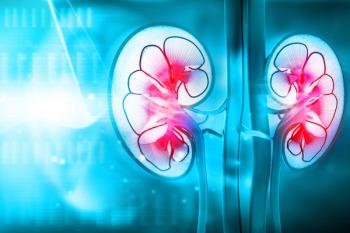
CancerNetwork spoke with Eric Jonasch, MD, about the NCCN’s recommendation and how thee multidisciplinary approach will play a role.

The addition of nivolumab to either chemotherapy or ipilimumab improved overall survival among patients with unresectable advanced or metastatic esophageal squamous cell carcinoma, according to data from the phase 3 CheckMate-648 trial.

Sumanta (Monty) K. Pal, MD, evaluated combination regimes, in particular the use of lenvatinib plus pembrolizumab, and what factors are taken into consideration for deciding on treatment.

The FDA approved the addition of isatuximab to the combination of carfilzomib and dexamethasone to treat adult patients with relapsed or refractory multiple myeloma who have received 1 to 3 prior lines of therapy.
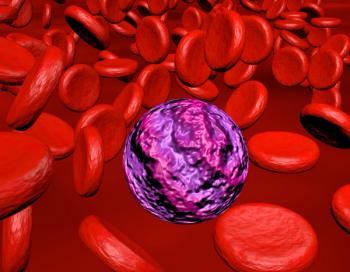
Treatment with gilteritinib, compared with salvage chemotherapy, improved overall survival in patients with relapsed/refractory FLT3 mutation–positive acute myeloid leukemia, according to a planned interim analysis of a phase 3 trial.

The FDA approved a revised label for daunorubicin/cytarabine to treat newly-diagnosed therapy-related acute myeloid leukemia (AML) or AML with myelodysplasia-related changes (AML-MRC) in pediatric patients aged 1 and older.

At the New York GU 14th Annual Interdisciplinary Prostate Cancer Congress® and Other Genitourinary Malignancies, Phillip J. Koo, MD, discussed the recommendations issued for the early detection of metastatic prostate cancer using next-generation imaging.

Christopher Lieu, MD, discusses the standard of care for genomic profiling in early stage CRC.
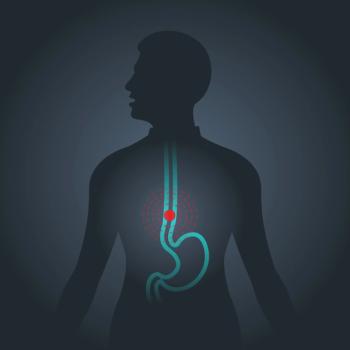
The phase 3 CheckMate 577 trial is the first to show a checkpoint inhibitor in the adjuvant setting after trimodality therapy demonstrate a statistically significant and clinically meaningful improvement in disease-free survival in patients with resected esophageal and gastroesophageal junction cancer.

The combination of cediranib and olaparib demonstrated modest efficacy in patients with recurrent, metastatic, or persistent endometrial cancer; however, this was not significantly different compared to cediranib alone.

One year after surgery, patients aged 70 years or older experienced moderate-to-severe tiredness, poor well-being, and lack of appetite.
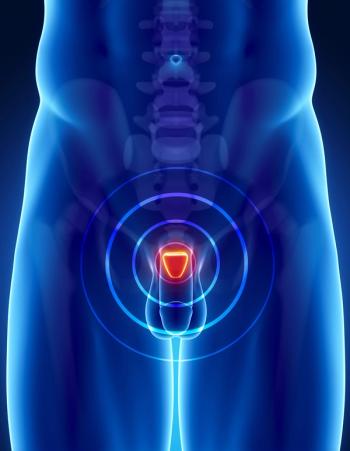
The use of next-generation imaging, like PSMA PET, has been shown to be superior compared with conventional imaging and may become a homestay in prostate cancer care in the future.

Independent variables, such as the burden of disease prior to treatment, molecular prognosis, sensitivity to chemotherapy, sensitivity to endocrine therapy, and sensitivity to other treatments could be effective in predicting risk of recurrence in patients with breast cancer.
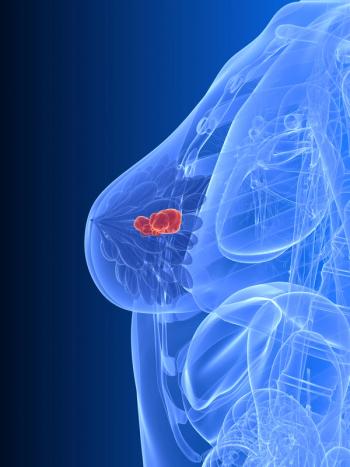
“Neoadjuvant endocrine therapy trials are feasible with relatively low toxicity,” Kelly K. Hunt, MD, FACS, FSSO, said during the 38th Annual Miami Breast Cancer Conference®.

Allowing for the use of antiemetic prophylaxis and anti-diarrheal medication in the phase 3 KX-ORAX-001 study reduced study drug-related gastrointestinal adverse events.

The addition of neratinib to capecitabine improved progression-free survival and central nervous system outcomes in patients with HER2-positive metastatic breast cancer with central nervous system disease.

The agency approved the supplemental new drug application to include the first-line treatment of adult patients with metastatic anaplastic lymphoma kinase-positive non-small cell lung cancer.

The potential to identify occult prostate cancer and accurately characterize disease burden was observed with the novel prostate specific membrane antigen (PSMA)–targeted radiopharmaceutical for PET imaging technique.
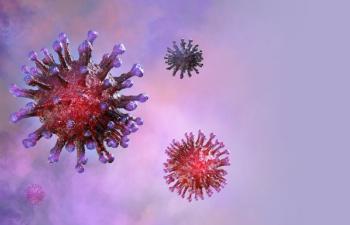
Findings from a poster presentation at the 2021 Transplantation and Cellular Therapy Meetings of ASTCT and CIBMTR suggest the feasibility of successful vaccinations against coronaviruses in patients with hematologic malignancies following stem cell transplant.

Results from the phase 2/3 KEYNOTE-010 trial continue to favor pembrolizumab, including key survival end points.
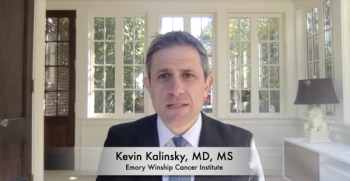
“We’re hearing about other antibody-drug conjugates, other agents in hormone receptor–positive metastatic disease, and the next generation of drugs that we’ll be using to treat our patients.”

Investigators aimed to evaluate additional end points from the phase 3 RxPONDER trial in women with hormone receptor–positive, HER2-negative, lymph node–positive breast cancer.

In this trial, investigators launched RxPONDER, in which 5015 patients with a recurrence score between 0 and 25 were randomized to endocrine therapy alone or chemotherapy followed by endocrine therapy.
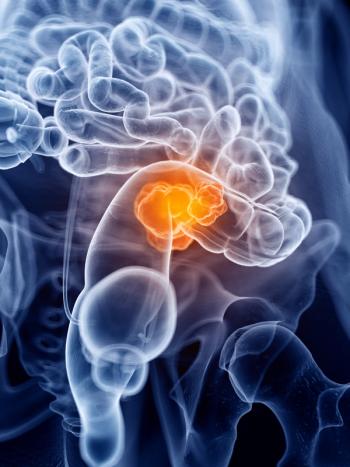
When compared with chemotherapy, patients with microsatellite-instability high/mismatch repair deficient metastatic colorectal cancer saw significant improvement in progression-free survival with the frontline use of pembrolizumab monotherapy, while demonstrating superior safety.

The FDA issued an emergency use authorization for the second coronavirus 2019 disease vaccine, Moderna COVID-19 Vaccine, to be distributed in the U.S. for use in individuals 18 years of age and older.